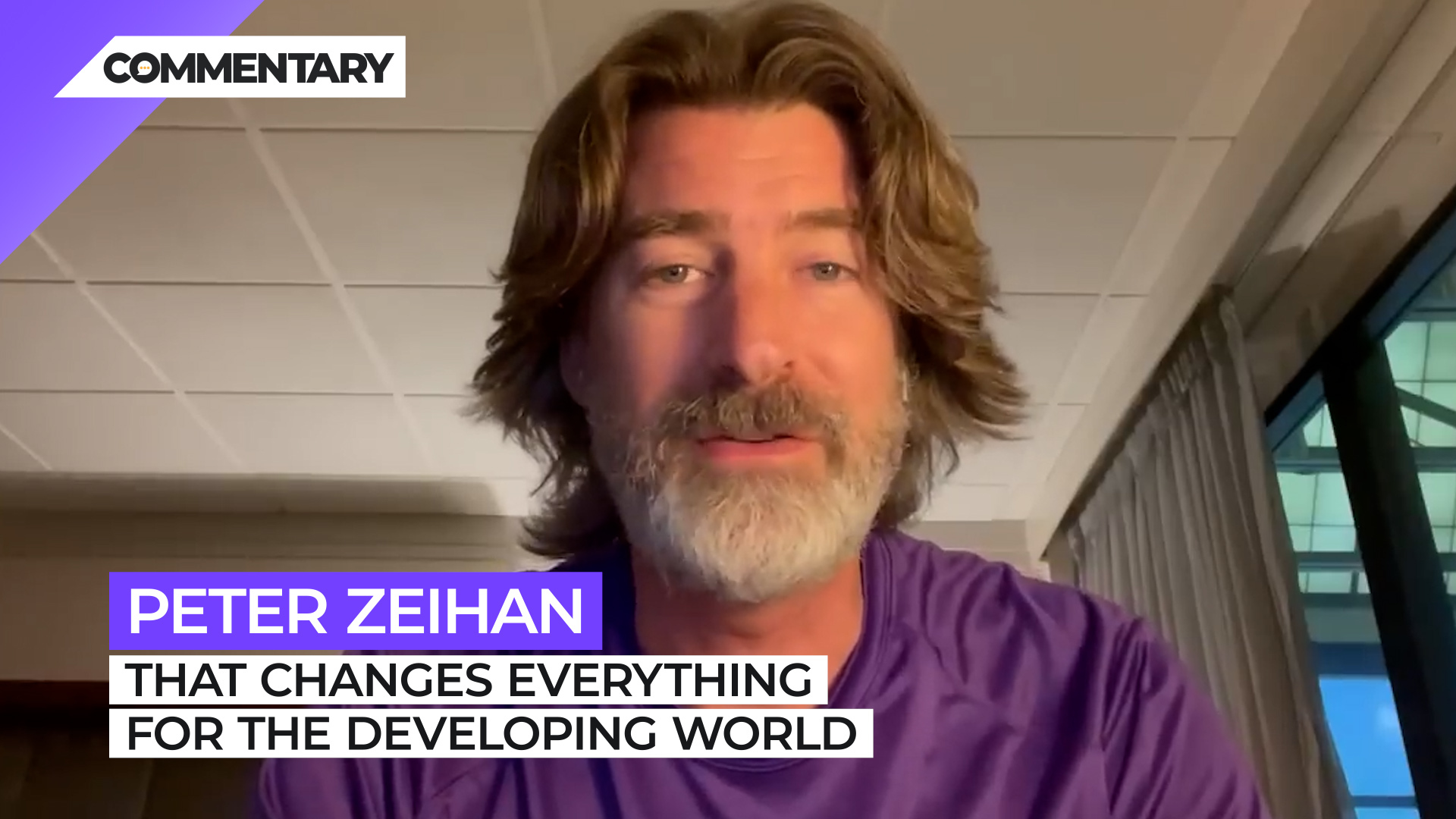
Commentary
-
Our commentary partners will help you reach your own conclusions on complex topics.
Hi, everyone, Peter Zion here coming to you from exciting Minnesota. I mean, in a hotel room obviously, just got the news that the Russians had been judged to be in full default of their national debt by Moody’s, which is kind of the keeper of the definition for what is the default and what is in good payment. This has taken us in a few weird directions because this has not happened and certainly not has happened this way in quite some time. Normally, when a country goes into default, it’s because they don’t have enough money. And they have to choose what to not pay for whether it’s to help out their own population, government services, infrastructure, their military or their foreign debt. And if you choose foreign debt, that means you are cut out of capital markets for quite some time. But the problem here is not that the Russians have run out of money. The problem is that the Russians are not able to spend their money in the way that they would like. So they had actually set aside the money, even the hard currency necessary to make their payments. But the United States has denied them access to the various financial plumbing of the American system, in order to allow that money to get to the actual bondholders. So from the Russian point of view, they haven’t defaulted. And they’ve got a reasonable position there. But it really doesn’t matter. Because if you don’t have access to the financial market, and you can’t move money around, then everything else is just kind of weird. But that does mean that investors are looking at this differently. This is not a situation where the Russians can just put a bunch of money into a FedEx envelope and send it off, you actually have to have the plumbing for the billions of dollars that have to move every month. Now, we’re seeing this sort of activity that the West is engaging in, and a lot of the sanctions, it’s not that the US or the West have dropped the nuclear option and just prevented the Russians from functioning, that would have too many side effects. Instead, the United States is working around the edges, the West is working around the edges, and making the Russians less and less welcome in any sort of economic activity that involves anything beyond their borders, and trying to use reputational risk as a way of inducing countries and companies to not do business with them. So you know, you could you could ship everything to that FedEx envelope, and get by with it. But you would then have to ask whether FedEx would want to play, and they don’t. And we’re seeing this in energy. And we’re seeing this in commodities. And we’re seeing this in ag and we’re seeing this in finance. Now, this indirect approach to sanctions is not nearly as effective. It’s not nearly as quick, it’s not nearly as efficient. But it does prevent or at least limit some of the more undesirable side effects. So for example, in energy, the United States could go out and just hijack a tanker carrying Russian crude, and that would set off cavitations throughout the entire system about what is allowed and what is not. And shipping companies then wouldn’t want to touch it because you don’t want to fall afoul of the US Navy, if you’re into the job of shipping. And companies that work for foreign countries like say India probably would then leave for sure as well. Because why would you put out all the risk and all the money if you might not just not get the crude, you might actually lose your vessel to but that would have income, or I’m sorry, that would have implications for the entire shipping system. And they’re trying to limit that sort of damage. Now,
looking forward here, there is a significant negative outcome of this kind of half assed approach to sanctions. Because the United States has now shown the West has now shown that it is willing to abrogate financial commitments from its citizens from its companies in its currency to other countries, even major countries, no legislation was required. No court case was required. There was no public comment period, it was just that the federal government decided to make this happen. I’m not overly concerned about the impact that this will have on the willingness of foreign countries to raise money and issue debt in the American market. Because it’s not like there’s a lot of other places to go. All of the world’s hard currencies are following the US lead here, every single one of them. So there is no back marketplace, you can go. But there is a definite point of concern for the American investors that were willing to go into foreign countries in the first place. Their concern has always been about legal protection and rule of law in places like China or Russia or Venezuela or wherever else. But it never occurred to them, that there might have actually been a risk on the American side of that equation. Because now they have to consider that not only will the United States not potentially provide them with legal protection on the American side should something go wrong in the foreign country, that the US government might actually be the reason that the investment fails because of a decision made by Fiat. That’s something that hasn’t been true since before. World War Two, but suddenly now is again, it’s just going to redirect a lot of capital away from the world’s developing and frontier markets, because all of a sudden, they don’t have a method to do it safely. And it doesn’t matter if they’ve got a well written bond agreement doesn’t matter if you’ve got an army of lawyers. If the comptroller of the global currency says no, the answer’s no. And that’s something they now have to factor in. And so if you’re looking to borrow money on an American exchange, all of a sudden, you’re gonna have to work a lot harder to get American and Western investors to go along with it. Because they no longer have that backstop of guarantee that they’re used to. And that changes everything for the developing world. Okay, that is it from me. Until next time,
-
Hurricane Helene hits US coast, Appalachia and beyond
Hurricane Helene hit Florida and Georgia overnight between Sept. 26 and 27 as a Category 4 hurricane, and accompanying storms will continue reaching deeper into the continental United States today. Dangerous flash flooding from the hurricane, known as storm surge, was some of the worst flooding that the Tampa Bay area has ever seen, and… -
Israel holds upper hand against Lebanon, Hezbollah and Iran
On Wednesday, Sept. 25, Hezbollah launched a ballistic missile at Tel Aviv in retaliation for Israel’s explosive pager attack that blew up devices across Lebanon. Although Israel’s defense systems intercepted the surface-to-surface missile, the attempted strike on Tel Aviv marked a significant escalation by Hezbollah. Since the siege on Gaza began, shortly after the Oct. 7, 2023,… -
The Sinaloa Cartel civil war
Fears of a civil war within the Sinaloa Cartel are growing as violence between competing factions within the cartel continues. The Mexican Army has dispatched around 600 elite troops to Sinaloa to help quell those fears, in addition to roughly 2,200 regular soldiers and National Guard. Watch the above video as Straight Arrow News contributor… -
New Ukrainian weapons hit Russia where it hurts
Ukrainian drones struck a major Russian ammunition depot, triggering a massive explosion that was captured on camera. According to the Ukrainian military, 2,000 tons of munitions had arrived at the depot before the attack. Over the past two years, Ukraine has significantly increased its domestic drone production, allowing it to scale up attacks on military… -
Weighing social costs vs. economic benefits on immigration
Global human migration is one of the defining elements of our current historical era, according to the United Nations. Migrants face both the incentives to leave — forced out by climate change, crime and corruption, extreme poverty or violence — and incentives for where to go, based on available job opportunities and so on. Migration…
Latest Stories
-
 Getty Images
Getty Images
Gene Hackman’s dead dog misidentified as details continue unfolding
-
 Getty Images
Getty Images
Sexual violence used as war tactic against Sudanese children: UNICEF
-
 Getty Images
Getty Images
Trump praises BlackRock for $19 billion Panama Canal investment
-
 Getty Images
Getty Images
President Trump announces arrest of Kabul airport bombing suspect
-
 Getty Images
Getty Images
Supreme Court requires Trump admin to pay $2B in frozen foreign aid
Popular Opinions
-
In addition to the facts, we believe it’s vital to hear perspectives from all sides of the political spectrum.
Latest Opinions
In addition to the facts, we believe it’s vital to hear perspectives from all sides of the political spectrum. We hope these different voices will help you reach your own conclusions.
The opinions published in this section are solely those of the contributors and do not reflect the views of Straight Arrow News.





















Latest Commentary
We know it is important to hear from a diverse range of observers on the complex topics we face and believe our commentary partners will help you reach your own conclusions.
The commentaries published in this section are solely those of the contributors and do not reflect the views of Straight Arrow News.
Dr. Frank Luntz
Pollster and Political Analyst‘Biased’: What Americans think of ‘mainstream media’
‘Getting rid of them’: Americans discuss Trump and immigration
‘Woke’: Why some Biden 2020 voters backed Trump in 2024